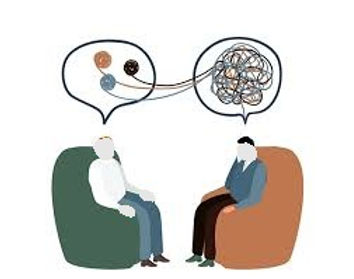Anxiety: Clarity & Compassion
- Yanky Sigal

- Feb 24
- 2 min read
Updated: Jun 15
Anxiety is one of the most misunderstood emotional experiences. Many assume it's simply a lack of faith, a sign of weakness, or something that can easily be willed away. One prevalent misconception is that experiencing anxiety indicates a deficiency in trust in Hashem. This harmful belief is neither accurate nor fair.
The Torah itself acknowledges the existence and naturalness of fear. In Devarim 31:6, we find clear guidance:
חִזְק֣וּ וְאִמְצ֔וּ אַל־תִּֽירְא֥וּ וְאַל־תַּעַרְצ֖וּ מִפְּנֵיהֶ֑ם כִּ֣י ׀ יְהֹוָ֣ה אֱלֹהֶ֗יךָ ה֚וּא הַהֹלֵ֣ךְ עִמָּ֔ךְ לֹ֥א יַרְפְּךָ֖ וְלֹ֥א יַעַזְבֶֽךָּ׃
"Be strong and courageous; do not fear or be terrified, for Hashem, your God, goes with you."
This pasuk acknowledges that fear is part of human nature. Precisely because fear is so common and normal, Hashem reassures us of His constant presence and support. Similarly, in Tehillim 56:4, Dovid HaMelech openly admits his fear:
יוֹם אִירָא אֲנִי אֵלֶיךָ אֶבְטָח׃ "When I am afraid, I will trust in You."
Fear itself isn't problematic - it’s natural. What matters is how we respond to that fear, using it as a catalyst to deepen our trust and reliance on Hashem.
The Torah does not instruct us to erase our fears. Instead, it teaches us how to navigate these emotions with emunah (faith). Bitachon, true trust in Hashem, does not imply the absence of anxiety; rather, it is the recognition that despite our anxieties, we are never alone.
Rabbi Akiva famously said during challenging times:
כׇּל דְּעָבֵיד רַחֲמָנָא לְטָב עָבֵיד
"Everything Hashem does is for the good." (Berachos 60a)
Rabbi Akiva wasn’t immune to distress. Rather, he trained himself to see the deeper reality behind his anxieties. Emunah does not erase human experience - it infuses it with meaning, transforming anxiety into an invitation for spiritual growth.
Another misconception is that anxiety is merely mild worry or occasional nervousness. True anxiety, however, can trigger intense physical reactions - rapid heartbeat, dizziness, shortness of breath, and even overwhelming panic. Harav Yaakov Meir Schechter Shlita once expressed that the suffering caused by severe anxiety is among the worst imaginable.
It's also crucial to dispel the myth that anxiety reflects personal weakness. Anxiety, from a biological perspective, is a survival mechanism designed to help us anticipate and respond to danger. It's not a character flaw but rather part of our innate human design. The Torah's aim is not to eliminate anxiety altogether but to guide us toward responding to it constructively.



